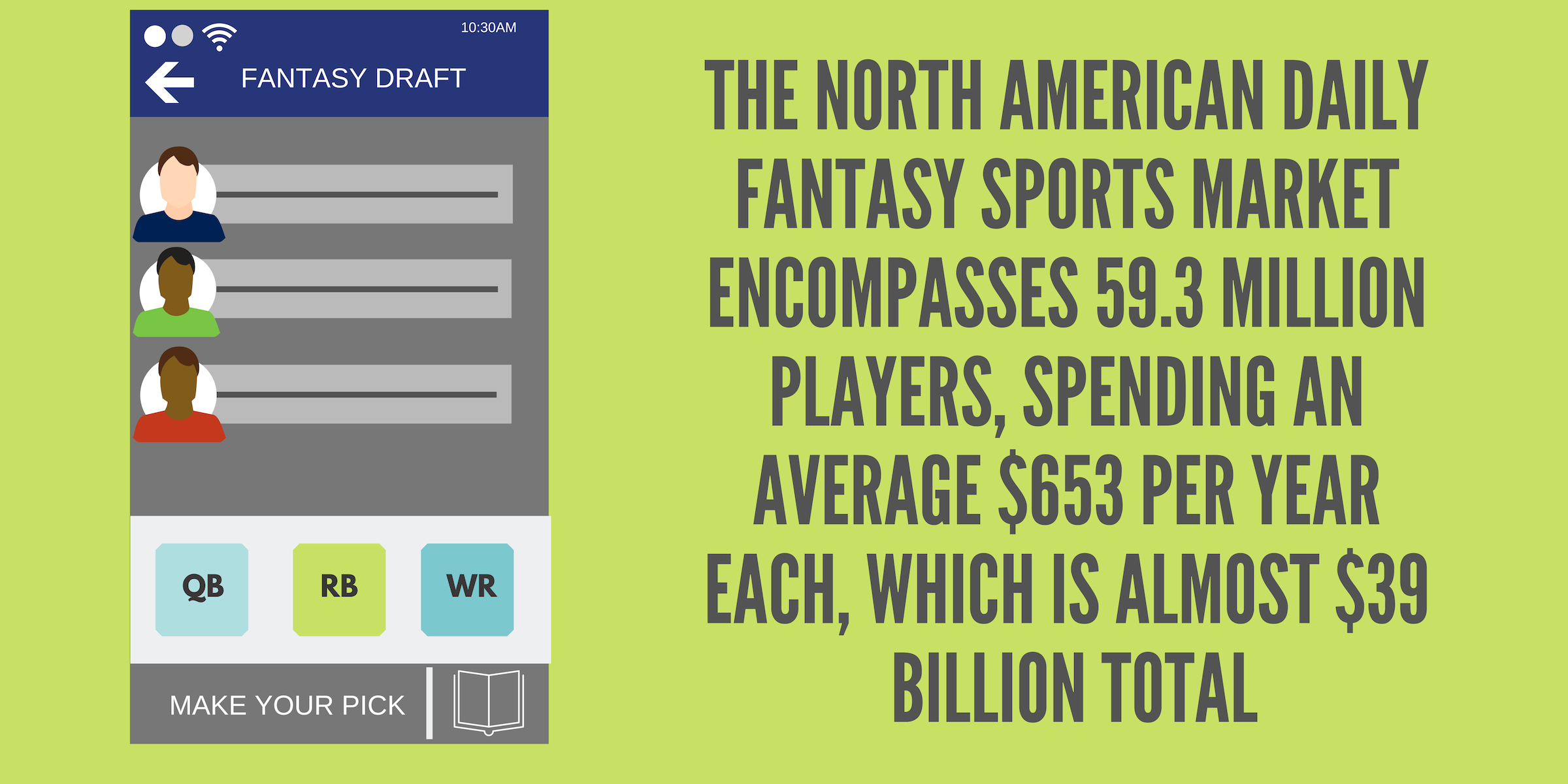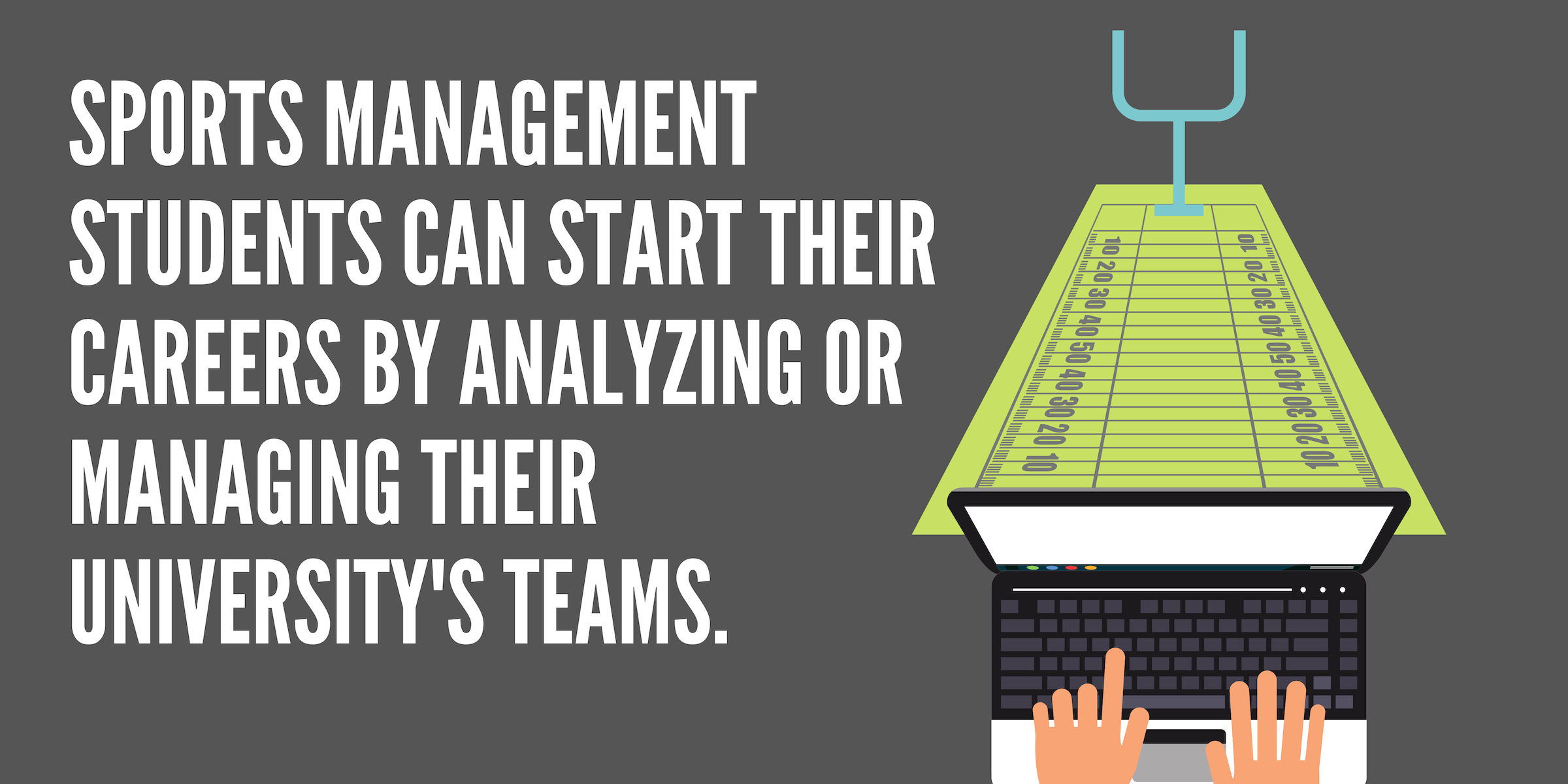Being a good teammate isn’t about recognition. I do it because it makes me whole and complete – Dwyane Wade
![]()
Sports Management is the upper-level business of scholastic, collegiate, professional, and amateur sports, fitness, and so much more. Professionals in the field may manage teams or aspects of sports organizations, work in sports marketing, merchandise, manufacturing, entrepreneurship, law, event management, finance, economics, statistics, help run fitness and sports facilities, among many other roles in this blossoming field.
Sports management MBA’s prepare you to fill a wide range of positions or begin your own business in the rapidly growing sports, fitness, and health industries. As our world becomes more insular, digital, and remote, there’s a growing demand for businesses and services that help people exercise, reaching their health and fitness goals, and just as importantly (but less commonly), get in shape while enjoying themselves in sports and play. There’s also the robust, thriving international organized sports community, that has continued to grow with the proliferation of streaming video, allowing sports and games to develop international audiences and participants in places that hadn’t been previously as accessible.
In fact, the largest area of growth within sports is anticipated to come from lucrative media rights deals, and the overall management of sports media. People who work in sports communications, law, marketing, and advertising account sports professionals will play a tremendous role in this aspect of the industry.
Featured Schools

The Internet’s influence on sports, fitness, and exercise has also created a demand for professionals to work in sports social media, as well as other classic and new forms of sports communications that require new talent. Sports organizations are also like any business, they need people working in accounting, human resources, and operations who may not be sports experts, but have entered the industry due to another specialization. Many of these professionals who specialized in another aspect of the business end up earning a Sports Management MBA to improve their sports credentials.
According to Forbes, in 2019 the North American sports industry is expected to be worth $73.5 billion, and the global value of the industry is estimated by some to be well over $1 trillion each year going forward.
Earning a Sports Management MBA is a way into this market, so let’s look at what it will it be like:
What is a Sports Management MBA?
A Sports Management MBA combines MBA coursework in areas like operations, finance, economics, revenue creation, analytics, accounting with specific study about sports businesses, including how to use social media, the state of the industry, exploring what makes sports organizations excel and what stunts them, sports law and media deals, sports negotiating, building a sports business, and much more. You can finish these programs in as little as a year of accelerated online study, or 18 months-2 years plus depending on your needs.
You’ll take business courses and sports-specific courses in:
- Economics
- Supply chains
- Legal issues
- Business ethics
- Accounting
- Finance
- Human resources
- And much more.
Other than the body of knowledge you’ll build, let’s explore the benefits of completing a Sports Management MBA program:
How Can Earning a Sports Management MBA Help You?
If you’ve been working in the sports industry, earning an MBA in Sports Management can significantly improve your skills, comprehension, networking, and value within the sports industry. If you haven’t been working in sports, but have experience in an aspect of the field (like event management, communications, human resources, etc.) and a passion for sports, these degrees could also be instrumental in making a shift in your career and expanding your job opportunities. In these degrees, you’ll delve into graduate business courses alongside a cornucopia of disciplines that sports leaders regularly practice. You’ll work to build a profound understanding of how sports organizations work, what makes them successful or struggle, and get ready to enter many roles in various sports organizations. Some of the positions and functions you’ll be prepared for include working with:
- Scholastic and amateur sports teams/organizations
- Fitness and health organizations
- Sporting goods manufacturers
- Professional sports teams
- Sports or fitness start-ups
- Athletes
- Among many other supervisory position in the sports world.
Sports Management MBA’s cover topics and can lead to jobs in which you’ll:
- Coordinate, run, and analyze the efficacy of sports organizations and events
- Draft or recruit athletes
- Hire athletic staff, including coaches, scouts, trainers, etc.
- Manage athlete training
- Manage Sports Psychology organizations
- Negotiate trades or contracts
- Develop and scout talent
- Manage personnel to get better results and accomplish organizational objectives
- Work in sales
- And so much more.
Sports Management MBA programs are a great place to network with like-minded peers. Remember, the sports world, like all industries, is in a state of flux. You’ll be coming up with the next generation of sports professionals, learning new techniques, trends, and practices alongside them. That, combined with the networking opportunities that different business schools offer can be instrumental in building a successful career in sports management.

Sports management professionals are:
- Highly organized: sports organizations have a stunning number of moving, intricately connected parts that need management.
- Well informed: you’ll need the latest understanding of statistics, trends, and everything that influences the industry.
- Adaptive: as things change in the sports world, you’ll need to recalibrate your business decisions frequently.
- Forward thinking: being able to predict what will be the most important changes in the industry will help you make better decisions today.
- Adept communicators: sports management is about getting the best work and cooperation from your staff, adjacent businesses and more to create better products and services for your clients and the public at large.

Things to Consider While Looking for a Sports Management MBA
While many different factors go into picking a Sports Management MBA program, here are a few to start with:
- How do you best fit into sports management through your career and educational experience? How has it prepared and motivated you to study and work in an area of sports business?
- If you have significant sales or social media experience (among other specializations) that can you decide on specific Sports Management MBA programs, or other MBA’s.
- How much can you afford in tuition for your MBA, and what kinds of loans would you need to take to pay for one? You should always strive to take public over private loans, and when possible pick a program you can afford.
- Depending on where you work, your employer might be willing to at least partially sponsor the tuition of a Sports Management MBA.
- By earning a Sports Management MBA online you can save significant time and money in tuition, travel costs, and you can find options in scheduling your program around your current work and life responsibilities.
- Online programs aren’t just attended remotely, they’re generally more flexible than traditional brick and mortar programs in terms of weekly scheduling, course selection, the overall time before you graduate, and more.
- How much time can you commit to a Sports Management MBA daily, weekly, and in total before you finish?
- Depending on what delivery format you choose you’ll have a markedly different Sports Management MBA experience. Would you rather a full-time program, part-time, traditional on-campus programs, online programs, or a combination of both online and traditional study.
- What would you like to do in sports management that perhaps you haven’t, and how would a specific Sports Management MBA help you be successful in one of them based on its prestige, connections, coursework, professors, etc.?
- What are your immediate career goals in terms of where you’d live? How much you’d like to earn? Have some concept of what you’d like to be doing in sports? How would a Sports Management MBA help you reach these immediate goals?
- Some cities, states, and regions have a greater demand for specific types of sports management professionals than others, and of course, some sports and forms of exercise and fitness are more popular in certain places.

Featured Schools
Sports Management MBAs Vs Related Degrees
There are a variety of degrees that have overlapping classes and curricula with Sports Management MBA degrees. A sports management degree program will give you a background in a number of different business areas, depending on your particular degree program and specialization. Examples of degrees related to sports management include:
- Human Resources
- Consulting
- Communications
- Business Analytics
Why should I choose a Sports Management MBA degree program over one of these related degrees?
If you love professional or amateur sports teams, and want to apply your business knowledge to a field that you love, a Sports Management MBA degree will allow you to work for major organizations in professional sports, as well as nonprofits for amateur sports. If you are very successful, you could become the general manager of a professional sports team. When working in the field of sports management, you get to see your hard work play out on the court, giving you tangible results and gratification if your team performs well. Additionally, sports management degree programs allow students to apply their business lessons to a specific industry, while other MBA programs are more general and do not adhere directly to a particular area of business.

Even if you earn an MBA in sports management, and end up deciding that another area of business is the best professional outlook for you, your MBA degree will qualify you for many lucrative career options. In your sports management degree program, you will take classes that relate to social media and communications, human resources, consulting, and analytics. These are skills that will help you in any field, so you don’t have to worry about being pigeonholed to sports teams and organizations.
How Can We Help You Get a Sports Management MBA?
There are a wide range of schools offering great Sports Management MBA programs, so figuring out where to start can feel overwhelming. Fortunately, by visiting MBACentral, you have taken the first step towards your goal. We’ve gathered a number of resources for prospective students who are looking into Sports Management and other MBA options. Some of our resources that could be helpful for you include:
- The 20 Best Online Sports Management MBA Degree Programs
- What is a Consulting MBA?
- What do Consultants Do?
- The Top 20 Online Human Resources MBA Degree Programs
- What Can I Do With a Marketing MBA?
- The 8 Best Online Social Media MBA Degree Programs
- The 20 Best Online Business Analytics MBA Degree Programs
- Top Online PhDs in Leadership Degree Programs
You should be sure to check back at MBACentral, as we update our information and add resources every week. If you find a school or program that might be a good match for you while searching through our resources and rankings, you should be sure to visit their website and request more information about their programs. Every college and university has admissions counselors that are paid to help prospective students find their ideal program, and assist them through the application process while helping them secure an appropriate financial aid package.
Can You Get a Sports Management MBA Online?
Yes, many colleges and universities have been investing heavily in their online options and infrastructure, to accommodate students with different scheduling and logistical requirements. Many new sports management MBA programs are being offered, so they are competing with each other to offer the best online learning experience for their students. Online degree programs have many advantages over the classroom model, including:
- Schedule: Online schools allow working professionals to maintain their current employment while working towards degree completion on their own time. Online programs offer a variety of features to give their students maximum schedule flexibility, including asynchronous class schedules, accelerated programs, and protracted degree completion for part-time students.
- Commute: Online students can complete classwork and exams wherever they have an internet connection. They do not have to pay room and board fees or waste time and money commuting to campus.
- Cost: Online programs are generally less expensive than their classroom counterparts. Prospective students should be aware that in-state and out-of-state tuition rates still apply if they are enrolled in an online program.
If you think that an online sports management MBA is right for you, you can explore our list of the best online sports management MBA programs. If any of the schools on the list pique your interest, you can contact their support staff through their school website and request more information about their programs, where they will give you information about how to apply and get into their programs.

How Do You Get into a Sports Management MBA Program?
Before applying to Sports Management MBA programs, you should be sure to consider your professional and academic expectations. Any graduate-level degree program requires an investment of time and money, so you will want to maximize your returns on investment. Some things that you should take into account before applying to degree programs are:
- Your Future Career: Graduate degrees provide specific skills and training for future professionals, and students often choose a specialization within their degree program to differentiate themselves from other students. Therefore, having an idea of a specific career track will go a long way towards helping you find the best program for you.
- Cost: MBA degrees can differ greatly in cost, as private institutions such as the Ivy League schools will be much more expensive than public state schools, which often offer great tuition rates for in-state students.
- Scheduling: If you are worried that an MBA program will keep you from maintaining your current employment and responsibilities, you should be sure to check out some Online MBA programs, as they are designed to accommodate students with full schedules, by offering flexible, asynchronous class schedules, that allow students to complete classwork and take exams whenever and wherever it’s most convenient.
- Network: One of the biggest advantages of earning an MBA degree is that you make connections with professors and peers in your industry. Some schools will allow you to network in particular communities that may be advantageous to your future career options.
Once you have considered your priorities, you are ready to start looking at potential Sports Management MBA programs. Before and during your application, you should:
- Earn your Bachelor’s degree: The first prerequisite for applying to MBA programs is that you have completed your undergraduate career. While it is suggested that MBA students major in a similar area during their undergraduate program, it is not necessary.
- Take the GREs: Most graduate schools require their students to complete Graduate Record Examinations (GRE). If you are nervous about standardized testing, you should sign up for a GRE course to help you study.
- Secure Recommendations from your Undergraduate School: Most graduate programs require their students to send recommendations from their previous professors with their application, so it would be a good idea to contact your former professors and inform them that you may be asking them for a recommendation in the near future.
- Apply to Reach, Target, and Safety Schools: To ensure that an MBA program accepts you, you should apply to a variety of different schools. It is good to apply to your dream schools, but you should also have a backup plan of schools that are likely to accept you.
- Decide on your school: Once you hear back from the schools that you applied to, it’s time to choose your program. If possible, you should do a campus visit and meet with your potential professors and advisors to help you with your decision.

What Jobs Can You Get With a Sports Management MBA Degree?
A sports management MBA degree will qualify you for many great career options both in sports, and other areas of business. Some of the most common jobs that you can get with a sports management MBA include:
- Agent or Business Manager of Athletes or other Performers: Talent agents and managers act as liaisons for athletes, actors, and artists, taking care of financial deals and performance accommodations so that performers can concentrate on what they do best. Agents and managers make an average salary of $90,870.
- Advertising, Promotions, and Marketing Manager: Marketing managers devise and execute marketing strategies to raise awareness of their brand, product, team, or player. They make an average salary of $129,380.
- Human Resource Manager: Human resource managers organize administrative services for institutions, companies, and other organizations. They often act as a link between employees and management. They make an average salary of $110,120.
- Management Analyst: Management analysts, also known as consultants, use statistical modeling and other means to analyze and improve an organization’s efficiency. In the sports world, these include salary cap analysts and scouts. They make an average salary of $82,450.
- Dietitian or Nutritionist: Dietitian and nutritionists use their knowledge of diet, food, and biology to help athletes and other people devise healthy diet strategies that are geared towards their personal goals. They make an average salary of $59,410.

Further Reading
- Online MBA Rankings
- MBA Degrees
- The 30 Fastest Online MBA Degree Programs Ranking for 2019
- The 50 Fastest Accelerated MBA Degree Programs
- The 50 Easiest Online MBA Degree Programs
- The 20 Best Online Executive MBAs
- What Can I Do With an Executive MBA?
- The 30 Best Online MBA Degree Programs – Ranking for 2019